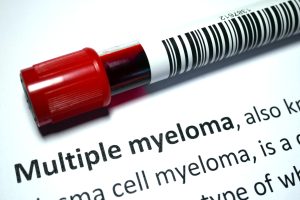
24 RCCA Physicians Named to 2025 Castle Connolly ‘Top Doctors’ List for Exceptional Cancer Care
A cancer diagnosis can be frightening. An individual may worry about how, or if, they will get better. The future becomes unclear and the strain
HIPAA Alert: Potential Data Breach Learn More
Questions on Oncology, Hematology and/or Infusion Clinical Services due to COVID-19 Crisis – CALL 833-698-1623
Important Information for Our Patients Regarding the Coronavirus.
RCCA Providing Area Cancer Patients with Access to Care During Coronavirus Outbreak
RCCA Offering Patients Virtual Visits During Coronavirus Pandemic
Chemotherapy is an effective cancer treatment, but it also causes side effects and a weakened immune system in many patients. Fortunately, there are ways patients can protect their immune systems during the chemotherapy treatment process. Regional Cancer Care Associates (RCCA) provides cancer treatments and related services, including chemotherapy, to patients in New Jersey, Connecticut, Maryland, and the Washington, D.C., area. Here, RCCA shares ways patients can safeguard their immune systems during chemotherapy.

Chemotherapy, commonly referred to as chemo, is a treatment that uses medicines to help treat diseases, mainly cancer. It targets the cancer cells and can work in a few ways, including:
As chemotherapy drugs act against cancerous cells, they also can hurt healthy cells and cause side effects. Managing these side effects as effectively as possible is key to helping patients receive needed therapy while maintaining quality of life. Finding this balance is particularly important given the central role that chemotherapy plays in treating many malignancies, including:
Potential side effects of chemo include fatigue, nausea and vomiting, diarrhea, hair loss, and increased risk of infections due to a lowered immune system defense. Chemotherapy treatments are usually scheduled with breaks in between doses so the patient’s body can recover from the side effects. It is important to note, however, that not all patients experience all of the potential side effects of chemotherapy. Further, the severity of side effects can differ significantly from person to person and from one round of chemotherapy to another.
When a patient is undergoing chemotherapy, he or she may experience feelings of fatigue, weakness, and low energy. Patients may also be worried about contracting infections because of their weakened immune system. Luckily, there are steps patients can take to enhance their immune systems and decrease their chances of infection. These include:
Eating a healthy diet consisting of nutritious foods, vitamins, and minerals is an important way to help protect your immune system during chemotherapy. To maintain their immune system and reduce the chances of infection, patients should eat a diet with enough protein, carbohydrates, healthy fats, antioxidants, and fiber. Some examples of foods to eat during chemo include chicken, hard-boiled eggs, vegetables, fruits, nuts, and other vitamin- and protein-rich foods.
Getting exercise during cancer treatments like chemo may be hard for some patients, but physical activity is beneficial for the immune system. Regular exercise has been shown to improve brain and body function, physical health, immune function, and more. Exercise can also help reduce other side effects patients may experience from cancer or its treatment, including fatigue.
Everyone knows that smoking is bad for the body, but smoking cigarettes is especially detrimental to patients with cancer. Smoking can damage an immune system that is already weakened by chemo, further compromising its ability to fight infections. To help their immune system be as strong as possible, patients should quit smoking during (and after) chemotherapy. Tobacco smoke can also impact the effectiveness of certain chemotherapy drugs by changing how the body metabolizes them. For help with smoking cessation, patients can speak with their doctor or join a support group.
Because chemotherapy may temporarily decrease the amount of infection-fighting white blood cells (WBCs) in the body, the immune system can’t ward off infections as well as it otherwise would. Patients undergoing chemo can take extra precautions to avoid infections, such as:
Getting adequate sleep is another way for patients to boost their immune systems during chemotherapy. A standard seven to nine hours of sleep helps strengthen the immune system in patients undergoing chemo. Some patients may experience sleep problems like insomnia during chemotherapy, but their medical teams should be able to suggestive effective strategies for obtaining enough sleep.
Receiving a cancer diagnosis and going through treatment can be stressful. However, patients undergoing chemotherapy should try their best to manage their stress levels. Increased stress can cause the immune system to weaken even further. Options for managing stress include therapy, joining a support group, exercising regularly, meditating, or – if you are religious – praying.
Chemotherapy treatment can be tough on the body, but taking the above actions can help patients manage their symptoms and protect their immune systems.
Patients with cancer who need comprehensive cancer care close to home can trust Regional Cancer Care Associates. RCCA offers innovative treatment options for patients with cancer and blood disorders at more than 20 locations throughout New Jersey, Connecticut, Maryland, and the Washington, D.C., area. Our experienced team of oncologists, hematologists, and other specialists is dedicated to helping patients choose the best treatment option for them, whether it is chemotherapy or another option. Request an appointment with an oncology specialist today.
For more information or to schedule an appointment,
call 844-346-7222. You can also schedule an appointment by calling the RCCA location nearest you.

A cancer diagnosis can be frightening. An individual may worry about how, or if, they will get better. The future becomes unclear and the strain

Multiple myeloma (MM) is a rare type of blood cancer that often develops without early symptoms, making awareness of risk factors essential. Regional Cancer Care

A cancer diagnosis can bring a wide range of emotions, from fear and stress to sadness and hope. These feelings are a natural part of

Regional Cancer Care Associates is one of fewer than 200 medical practices in the country selected to participate in the Oncology Care Model (OCM); a recent Medicare initiative aimed at improving care coordination and access to and quality of care for Medicare beneficiaries undergoing chemotherapy treatment.